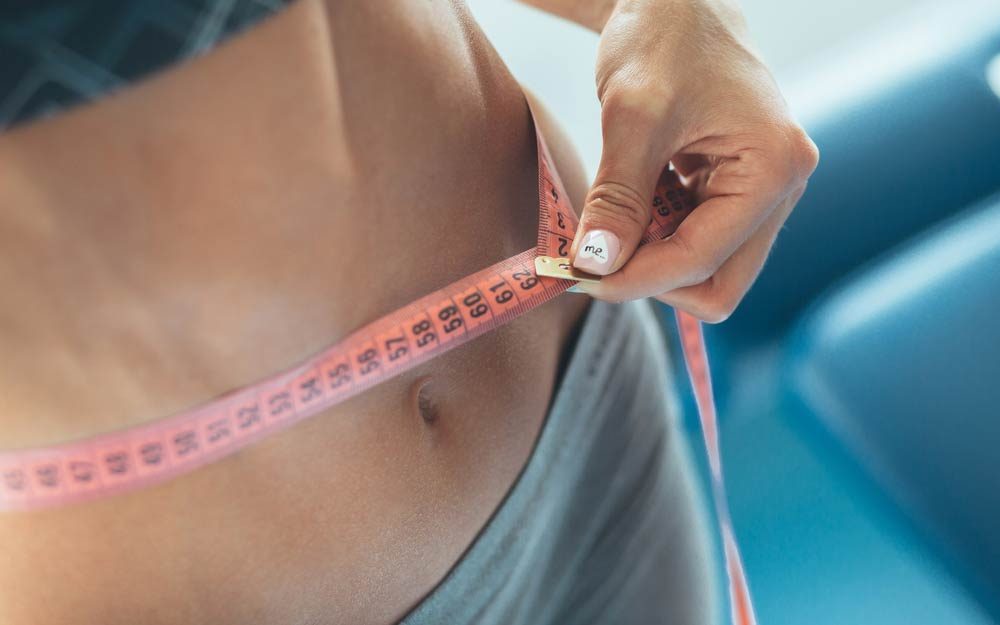The reasons people decide to go on a diet are many and varied, from health issues to an unhappiness with self-image. No matter what prompts a weight loss campaign, however, there is usually a common desire in mind: to look and feel better. Surprisingly, this isn’t always simply about how many pounds you lose.
When you’re in the middle of a diet it’s easy to lose sight of what’s actually important and to get lost in a focus on numbers. While every pound shed is a victory, if you let the reading on the scale become more important than the desire to look and feel good, then the whole point has been lost somewhere along the line. For many people, the phenomenon of bloating can have just as big an effect as a few excess pounds on how slim and healthy you feel, and yet it’s a condition that’s often overlooked during the quest to jettison the fat.
What is Bloating?
Bloating is basically the condition of having an excess of gas inside your body cavity, from the stomach down through the colon. It can make you feel heavy and listless, and in severe cases, it can even push up your clothes size as your body expands a little under the pressure. Usually, your stomach will feel stretched, tight, and even sore.
The feeling is most widely known as that felt after a festive weekend of heavy food and drink consumption, but for some, it’s an everyday fact of life. It’s also a very common problem with people whose daily diet has undergone significant changes – which of course means most people who are trying to lose 10 pounds in a week.

Common Causes, and Ways of Reducing It:
Artificial Sweeteners:
Chemicals such as aspartame are widely used in diet foods to add a taste of sweetness without the calories of sugar. Unfortunately, many of these artificial sweeteners are indigestible, and can cause build-ups of gas within the gut, leading to bloating. There are other suspected health problems associated with using sweeteners over extended periods, so for long term diet success, overall health, and less bloating try to reduce the amount of sweet foods and drinks you consume in general, whether they contain sugar or artificial sweeteners.
Ingesting Gas:
A major cause of bloating is simply taking in air or other gas while eating or drinking. Carbonated drinks are an obvious culprit, so consider reducing consumption of these, but the way you eat meals can have an impact too. Try to slow down your eating, chewing more thoroughly, and taking longer over every mouthful. Not only will this reduce the amount of air that you swallow, it will also have positive effects for your weight: studies have shown that the slower you eat, the less calories you need to make you feel full, and so the less you eat in a sitting.
Mix Up Your Veggies:
Raw vegetables are excellent from a nutritional and dietary point of view, but they can be difficult to digest, leading to excess gas and that bloated feeling. This is especially true if they’re suddenly introduced to a diet, so go easy on the fresh fruit and vegetables at the start of your weight loss, mixing them with lightly cooked ones until your body has a chance to adapt.
Allergies and Other Problems:
If changing your diet seems to have no effect on your bloating, it may be an idea to explore the possibility of an allergy. Both lactose intolerance and coeliac disease can cause severe bloating, as can less widely recognized conditions such as a fructose allergy. Bloating is also a common symptom of irritable bowel syndrome, so consider seeking a diagnosis from your doctor if the symptoms persist.
In most cases, bloating is the natural result of a change in diet or of poor overall eating habits, and while it can be a distressing side effect at the start of a weight loss regime, over time your body will adapt to a healthy, varied diet which will not only make your stomach less bloated, but will keep your weight down too.





